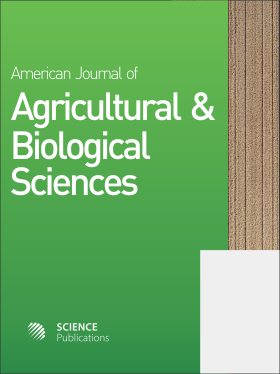Lisrel Analysis of Factors for Empowering Producers to Abolish Livelihood Poverty through Optimizing Agricultural Water Resources Management
- 1 Dezful Branch, Islamic Azad University, Agriculture College, Dezful, Iran
- 2 Tehran University, Karaj, Iran
Abstract
Problem Statement: Most of the projected increase in global population will take place in third world countries that already suffer from water, food, and health problems. Irrigation in developing countries tends to be stereotyped as equity reducing, in competition with other uses for scarce water resources. Agricultural intensification through the practice of irrigation as a strategy for poverty reduction is examined. Water users were surveyed in order to explore their perception about the factors influencing the optimizing water consumption in agricultural sectors in Iran. This study looks into water-poverty interfaces as well as into approaches to and tools of, managing water in such a manner that water sector activities can contribute to alleviation of poverty. In addition, this study aims to empower water users with information on agricultural wastewater. Approach: The methodology used in this study involved a combination of descriptive and quantitative research. The total population was 350 producers in six provinces in Iran. Results: Based on the perception of the respondents and ordinal factor analysis, the factors were categorized into four group’s namely technical and practical, recognition and managing water equipment and constructive ordered by the magnitude of their impact. The total variance explained by these 4 factors is 54.27% as effective mechanisms in optimizing agricultural water resources management. Structural equation model is expected to be useful for designing targeted optimizing agricultural water resources management and poverty alleviation strategies that also enhance agricultural-productivity growth. Conclusion/Recommendations: Where there is equity in resource distribution, the impact of improved water management on agricultural productivity growth has been more poverty reducing. Using water better means improving the productivity of agricultural water in both irrigated and rainfed systems, through multiple-use water system, integrated water resources planning, and targeted research.
DOI: https://doi.org/10.3844/ajabssp.2010.7.14

- 4,400 Views
- 4,293 Downloads
- 2 Citations
Download
Keywords
- Empowering producers
- abolish poverty
- water management
- Waste water management
- rural livelihood
- agricultural water
